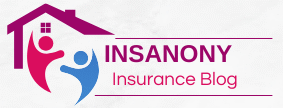No matter whether your business is small and new or an established one, every organization faces unique risks that require insurance protection. By working with an insurance professional to assess these risks and identify suitable coverage types for you, determining which forms of business insurance policies works best is now more possible than ever.
Though companies can implement proactive measures to mitigate risk, accidents still happen and natural disasters should always be prepared for. To make sure your company thrives and survives, having adequate business insurance policies in place is vitally important.
Property Insurance
Commercial property insurance provides businesses with protection against loss or damage to their equipment, inventory and physical location. This form of business insurance may be purchased separately or combined with their general liability policy to address potential bodily injury claims that result from customer interactions or property damage claims that arise due to these interactions.
Startup businesses face numerous risks, from property damage and legal claims to lost profits. Integrating insurance policies into their risk management plan helps manage these threats while providing financial support during unexpected challenges.
There are various forms of commercial insurance policies, each tailored to specific policy limits, exposure bases and coverage terms. Examples of this coverage may include general liability for property damage; professional liability to cover mistakes in services provided; workers’ compensation coverage of employee injuries and more.
Location and usage both have an effect on premiums as do types of risks that a business is exposed to. All-risk policies provide coverage against anything not specifically excluded in their policy while other options like Business Owner’s Policies (BOPs) bundle property, commercial auto and general liability policies into one package that’s often less costly than purchasing each separately. Insurance agents can help select an ideal type of commercial insurance based on each company’s risks and liabilities.
Liability Insurance
As businesses expand, they face numerous risk factors that threaten both daily operations and long-term sustainability. Implementing proper risk management strategies and insurance policies is vital in protecting them against financial collapse in case disaster strikes.
Based on your type of business, you may require different forms of insurance coverage. Contractors working with heavy equipment or machinery might need workers’ compensation insurance in case employees become injured on the job; while clients working directly with you could require professional liability or errors and omissions coverage to protect against accusations of negligence or mistakes. For businesses that need comprehensive protection at once, consider getting a Business Owners Policy (BOP).
Assessing risks and taking steps to mitigate them can lower the potential cost of lawsuits and other issues for your company. Implementing safety protocols and training employees can lower risks of property damage or employee injuries, and regularly reviewing and adding coverage as your business expands will give your peace of mind that your operations and customers are protected against unexpected events. Working with an experienced agent will ensure your unique risks are understood, so they can help select an insurance policy tailored specifically for them – giving you peace of mind to focus on running and growing your business without worry for lawsuits or issues arising out of unexpected events!
Business Interruption Insurance
Business interruption insurance (BI), is a policy designed to reimburse your company for lost income during the restoration process following property loss. BI may be included as part of your property or liability policy or purchased separately as an add-on policy. These policies typically feature two forms of coverage: operating expenses and extra expense coverage – operating expenses cover ongoing company costs such as rent, utilities and salaries while extra expense covers additional costs related to mitigating effects of an incident and returning operations back to normal – this could include temporary relocation and increased charges for expedited services among others.
CBI (Contingent Business Interruption Insurance) protects your company against losses caused by disruptions in third party operations that you rely on for revenue, such as if a fire forces your supplier to close and cease shipping products; you could use CBI to cover the revenue loss due to this incident. Some policies offer civil authority coverage features as well, providing compensation in cases of government-mandated closures or restrictions of access on premises.
Business interruption insurance can be an essential risk mitigation strategy. However, it’s important to remember that these policies don’t protect against all possible threats; for instance, in a flood zone your inventory won’t be covered under business interruption insurance – therefore conducting a full risk analysis is vitally important.
Employee Dishonesty Insurance
Employee dishonesty insurance or crime coverage (often known as employee theft coverage) protects businesses against acts of fraud and dishonesty committed by their employees, such as unauthorised fund transfers, inventory theft, cash or securities theft from the company, forgery, false accounting fraud and expense reimbursement fraud. Employee dishonesty coverage may be purchased independently or as an add-on to a commercial crime policy and typically offers higher limits and broader coverage than fidelity bonds.
Even though most people assume only large companies need this coverage, small and mid-sized businesses can also be vulnerable to employee dishonesty – this is particularly true of companies who entrust financial systems, inventory or client property to employees.
Contrasting with traditional commercial general liability and property policies, employee theft or dishonesty coverage typically protects against employee acts that occur on company-owned vehicles as well as in their physical location. Acts of employee theft and/or fraud committed outside the business premises may also qualify, such as using company credit cards for personal purchases. As part of your ongoing risk analysis, it is vitally important that you read carefully the terms, definitions and exclusions of any policy you purchase in order to fully comprehend its coverage. Furthermore, significant management controls should be implemented such as dual signature checks for payments with large sums due, CPA-audited statements as well as various individuals reconciling bank deposits at month’s end.




